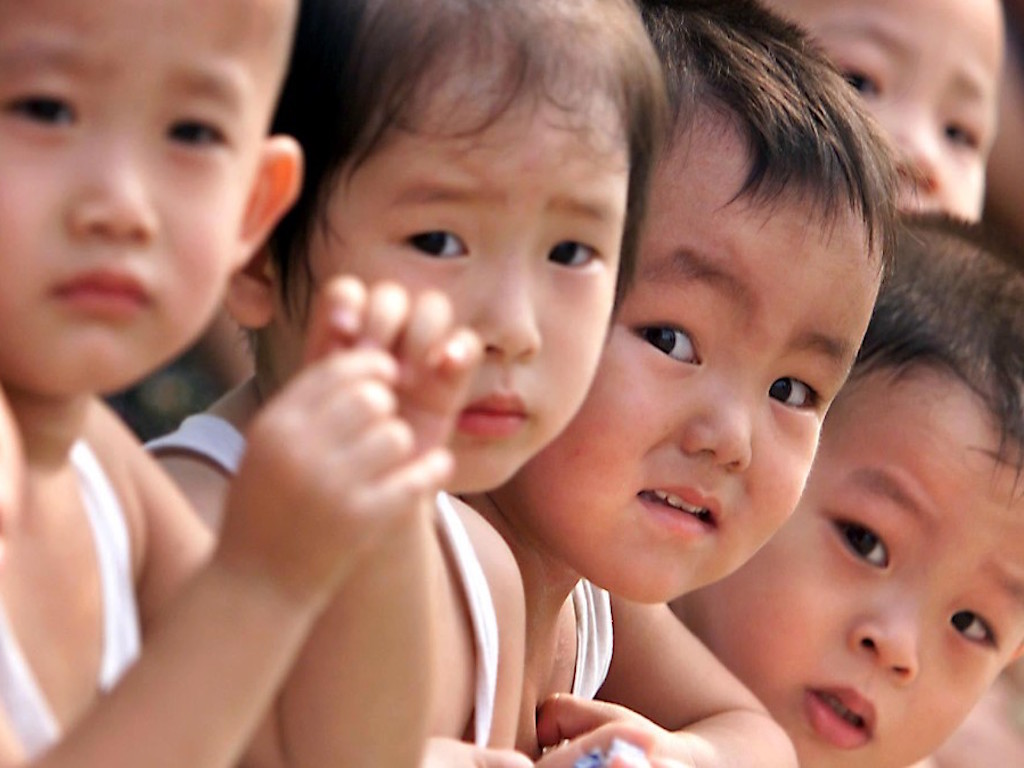4 Mins Read
A baby born in 2019 will live a life that is fundamentally affected by climate change, says a new report by The Lancet commission. Due to soaring global temperatures – which are showing no signs of slowdown with carbon emissions rising year on year – children of today are likely to experience extreme weather events, food and water shortages, mass migration from uninhabitable cities, flooding and wildfires on the regular. On our current trajectory, we are looking at a temperature rise of four degrees celsius by the time a child born today reaches the elderly years of his or her lifetime. Even if we manage to keep temperatures within the recommended 1.5 degrees celsius, the young generation will continue to face major environmental and health impacts stemming from our climate crisis.
The new report, titled The Lancet Countdown on Health and Climate Change, with contributions from over 120 experts across 35 institutions, is warning that children will bear the brunt of the health and environmental harms brought on by our climate emergency. The frequency of droughts, heat waves and flooding are already increasing in recent years and months, which is putting as many as 300 million people’s livelihoods, homes and physical safety at risk. While the report focuses on the destructive environmental impact of climate change, it emphasises the health related vulnerabilities that our ecological crisis will bring, especially to children and babies. The picture is so bleak that experts are looking at a backtracking trend in the future on the key health and wellness gains that we have made in recent decades.
In particular, the experts highlighted that warmer weather is making food harder to grow in certain areas, which puts key populations – especially children – vulnerable to food shortages, nutritional deficiencies and weakened immune systems to protect them against pathogens and diseases. Not only will rising temperatures and extreme weather events decimate crop yields, global warming will also promote the spread of mosquitoes across habitats that they previously couldn’t survive in, which will lead to more cases of dengue fever in areas where the illness didn’t exist in the past. As of right now, half the world is already in the range of the mosquito-borne disease.
“It was critically important to make sure that we transmitted [climate change] in a way that truly resonated and truly highlighted that children’s health and wellbeing, both now and in the future, is being robbed by climate change,” said emergency physician at Harvard Medical School and a contributing author to the report, Renee Salas.
In addition to food insecurity, children face health risks from air pollution, which is driven by fossil fuel burning that worsens global warming, wildfires that cover cities in severe toxic haze, and cars and other power plants that spew soot into the atmosphere. In recent months, more and more research has revealed the extent of damage that air pollution can have on our health, from being linked to “silent” miscarriages in China to heightened risk of deadly brain cancer in Canadian cities. The mounting evidence on the toxicity of air pollution has led to the World Health Organisation (WHO) classifying the issue as a global silent killer. As children born today will throughout their lives breathe in air of low quality, they will probably face the most severe and health damaging effects.
Summarising these findings, executive director of The Lancet Countdown, Nick Watts said: “Without immediate action from all countries to cut greenhouse gas emissions, gains in wellbeing and life expectancy will be compromised, and climate change will come to define the health of an entire generation.”
Finally, expert scientists at The Lancet also tracked several other indicators in the report, including economic costs. They conclude that by failing to set up the necessary infrastructure to handle the numbers of hospital admissions stemming from climate related health issues, public health services will be over-strained and the economic cost of backtracking on key health gains we have made over the years is immeasurable. It mirrors the findings of analyses by other institutions, such as those by Morgan Stanley and the Global Commission on Adaptation – both of which have emphasised the economic losses that climate inaction will bring. Globally, hunger and malnutrition have steadily declined in the past 20 years, which has uplifted the living standards and lifespans of millions of people – many of whom are in Asia.
Scientists at The Lancet have previously voiced their concerns about our current global system. In January this year, the research body EAT-Lancet released a report on the state of the world’s food system, and concluded that without a dramatic shift towards a plant-based planetary health diet, we are looking at a bleak future: mounting nutritional deficiencies in poorer countries, obesity crises in developed cities and an unsustainable future for our world. The recommendations by the experts have since called the attention of several key city mayors, who have joined the Good Cities Pledge to slash meat consumption and food waste.
Lead image courtesy of Stephen Shaver / AFP / Getty Images.




